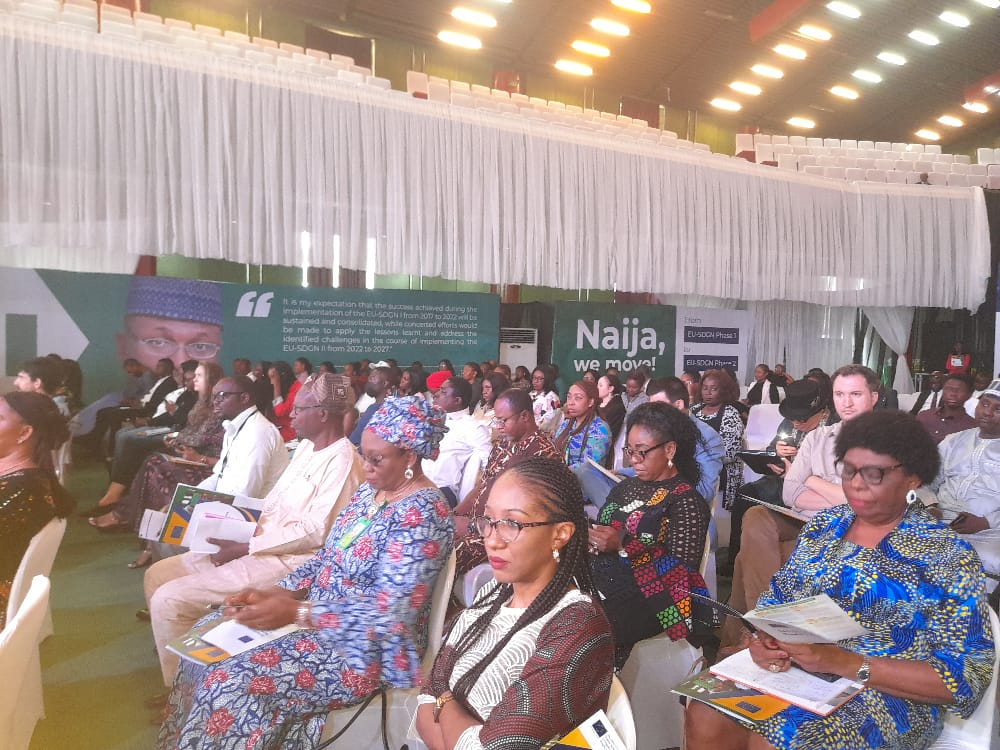Ahead of the 2023 general elections, stakeholders are brainstorming in Abuja on the best approach to supporting Democratic Governance in Nigeria at the launch of the next chapter of the European Union support to Democratic Governance in Nigeria, EU-SDGN.
It was a gathering of past and present key players in the electoral sector at the event, aimed at finding lasting solution to sustaining electoral process in the country, marks the end of the phase one of the programme and official commencement of the phase two of the EU-SDGN programme

In her welcome speech the ambassador of EU to Nigeria and ECOWAS, Ms Samuela Isopi said EU’s firm belief that only a functioning democracy can address citizens’ needs and build prosperous, resilient and strong societies informed their support to electoral processes.
She said the European Union has provided technical support to key electoral institutions and stakeholders since Nigeria’s return to democratic rule in 1999, with over a hundred and fifty million euros, committed so far noting that the phase one of the EU-SDGN programme contributed to the reform of the electoral process by building capacities, strengthening institutions, strengthening the role and participation of civil society organisation, contributing to the reform of the legal framework.

Building on the success of the first phase, the Identification and Formulation of phase II of the programme was done in consultation with the Nigerian Government and key stakeholders such as the Independent National Electoral Commission, INEC, and civil society organisations with the overall objective of fostering a functioning pluralistic, inclusive, participatory and representative democracy in Nigeria.
In a goodwill message, the Chairman of the Independent National Electoral Commission, INEC, Professor Mahmood Yakubu, applauded the programme saying INEC was a key beneficiary of the first phase under the National Indicative Programme 2014-2020 implemented by the European Centre for Electoral Support, ECES, and the Commission received various support mainly in the areas of training and capacity building of staff, engagement with stakeholders, voter education and public enlightenment and the promotion of inclusivity.





Comments are closed for this post.